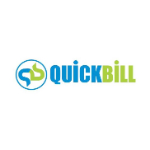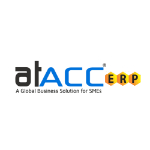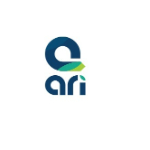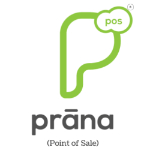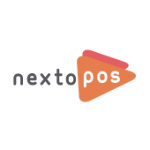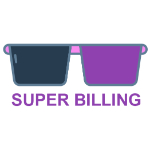TechnologyCounter provides genuine, unbiased real user reviews to help buyers make informed decisions. We may earn a referral fee when you purchase through our links, at no extra cost to you.
List of 15 Best POS billing software
Showing 1 - 15 of 48 productsZoho Invoice is free invoicing software built for small business owners, freelancers, and entrepreneurs. Using this robust software, businesses can create and send invoices; collect online payments; manage quotes, recurring invoices, projects, and ex...Read Zoho Invoice Reviews
Paytm Billing POS is the revolutionary solution for all your billing and payment needs. With user-friendly features and seamless integration, Paytm Billing POS streamlines your business operations and maximizes efficiency. Say goodbye to outdated met...Read Paytm Billing POS Reviews
Uprow ERP is a software solution designed to streamline and optimize business operations for maximum efficiency and profitability. Its intuitive interface and robust features make it the ultimate choice for companies looking to stay ahead of the comp...Read Uprow ERP Reviews
FreshBooks account management software simplifies your financial responsibilities and ensures speedy and safe performance. Easily generate invoices, monitor time, and record expenses within minutes. We are dedicated to delivering exceptional customer...Read FreshBooks Reviews
Busy Accounting Software is a solution for all your financial management needs. With its user-friendly interface features, Busy streamlines your accounting processes and helps you stay on top of your finances. Say goodbye to tedious tasks and hello t...Read Busy Accounting Software Reviews
QuickBooks Online is a user-friendly accounting software designed to simplify financial management for small businesses. With its cloud-based platform, users can easily access and organize their financial data anytime, anywhere. From creating invoice...Read QuickBooks Online Reviews
Saral Billing is a module within the Saral Accounts software that focuses on product billing and inventory management. This feature caters to the diverse billing needs of the trading industry, which includes wholesale, distribution, and retail secto...Read Saral Billing Reviews
Romio POS arrangements is the most exceptional framework for Restaurant, Pub, Bar, Sweets shop, fine feast in café, Food Courts, and Hotels. It presents with different items that are exceptionally effective yet the most easiest to utilize...Read ROMIO POS Reviews
QuickBill is the revolutionary billing software designed to simplify and streamline your invoicing process. With a user-friendly interface is a features, QuickBill ensures accuracy and efficiency in all your billing needs. Say goodbye to the complexi...Read QuickBill Reviews
atACC ERP 19 is a latest in business management software. Designed to streamline your processes, increase efficiency and maximize profits, atACC ERP 19 is a solution for all your organizational needs. From finance and accounting to sales and inventor...Read atACC ERP 19 Reviews
Ari Retail POS is a versatile is a software solution designed to revolutionize the retail industry. With Ari, managing sales, inventory, and customer data has never been easier. Simplify your point-of-sale operations and elevate your business to new...Read Ari Retail POS Reviews
urbanPOS, a game-changing software designed to revolutionize the way businesses handle their point of sale system. With its intuitive interface features, urbanPOS streamlines transactions and boosts efficiency. Say goodbye to traditional cash registe...Read urbanPOS Reviews
Prana POS is a solution for streamlining your business operations. Say goodbye to manual processes and hello to seamless inventory management, efficient sales tracking, and effortless customer management. With Prana POS, take your business to the nex...Read Prana POS Reviews
NextoPOS, the innovative point of sale software designed to streamline and simplify all your business transactions. With its user-friendly interface is a features, NextoPOS is a solution for managing your sales, inventory, and customer data. Experien...Read NextoPOS Reviews
Super Billing, the innovative software designed to streamline and simplify the invoicing process for businesses of all sizes. With its user-friendly interface features, Super Billing is revolutionizing the way companies handle billing and payments. S...Read Super Billing Reviews
- What Is POS Billing Software?
- Top Reasons Why Businesses Need POS Billing Software?
- What Are the Top Key Features of POS Billing Software?
- What Are the Top Benefits of POS Billing Software?
- What Are the Steps to Choose the Right POS Billing Software?
- What Are the Types of POS Billing Software for Different Industries?
- What Are the Technology Trends for Best POS Billing Software?
- What Are the Deployment Options for POS Billing Software?
What Is POS Billing Software?
Point of Sale (POS) billing software is a software application designed to facilitate the processing and documentation of customer transactions by businesses. The software is utilized for several purposes such as sales management, invoicing, inventory tracking, and other related functions.
The utilization of this software facilitates a more efficient and expeditious execution of sales transactions at the point of sale. Furthermore, it can assist organizations in enhancing the efficiency and security of their transaction management processes.
Online POS billing software commonly encompasses functionalities that enable enterprises to facilitate payment processing, generate printed receipts, and maintain a repository of client data. Typically, it is equipped with a user interface that enables clients to efficiently input various facts, such as their payment method, customer loyalty program information, and additional relevant data.
Additionally, it commonly encompasses functionalities that enable enterprises to monitor their inventory levels and effectively manage promotions or discounts. In general, point-of-sale (POS) billing software is a crucial tool for firms that engage in regular client transactions.
The POS billing systems enable users to expediently and effectively handle financial transactions, manage customer data, and monitor inventory quantities. By utilizing this software, enterprises can enhance their customer service, streamline their operations, and augment their financial performance.
Top Reasons Why Businesses Need POS Billing Software?
1. The automation of human procedures, such as billing and inventory monitoring, has led to a notable enhancement in both efficiency and accuracy.
2. User-friendly graphical interfaces that enhance the ease of conducting transactions and managing financial records.
3. Online POS billing software automates the process of monitoring consumer loyalty programs or discounts applied to transactions.
4. To enhance the quality of customer service, it is recommended to expedite the payment process and minimize waiting time for clients.
5. The device establishes a connection with a point of sale terminal to streamline the checkout procedures and eradicate the need for manual input of data.
6. The software has comprehensive reporting capabilities, allowing users to conduct detailed analyses of sales, transactions, and customer expenditures.
7. The POS billing systems can seamlessly interact with many business systems, including accounting and ERP systems.
8. Augmented marketing functionalities, encompassing the capacity to expediently generate promotional materials, vouchers, and discounts.
9. The platform provides payment processing functionalities that facilitate the seamless processing of credit and debit card transactions.
10. The capability to establish recurring billing for services or commodities.
11. The inclusion of robust scheduling capabilities facilitates the ability of organizations to effectively manage and adhere to project timelines.
12. The platform provides up-to-date and comprehensive financial and sales data, facilitating convenient monitoring of performance.
13. The system offers expedient and convenient retrieval of reports to facilitate their utilization in internal audit processes.
14. The Online POS billing software includes individualized customer service and support, which assists organizations in promptly and efficiently resolving any encountered challenges.
15. The solution is designed to be scalable in order to accommodate the operational requirements of enterprises across various sizes.
What Are the Top Key Features of POS Billing Software?
1. User-Friendly Interface: The best POS Billing software provides a user-friendly and intuitive interface that facilitates streamlined and effective billing and operational procedures.
2. Computerized Inventory Management: The utilization of online POS billing software facilitates the management of inventories and enables the generation of automated reports.
3. Payment Processing: This technology facilitates retailers in securely and expeditiously conducting financial transactions over a diverse array of payment gateways.
4. Catalog Management: Maintaining a comprehensive inventory of items and services facilitates convenient access and retrieval.
5. Tax Calculation: The software enables precise tax computations and offers supplementary savings or promotions.
6. Customer Relationship Management (CRM): The platform offers several amenities, including loyalty programs, promotional updates, and comprehensive consumer data, intending to enhance client interaction.
7. Reporting & Analysis: Analyzing sales data and monitoring business performance are beneficial activities.
8. Mobile Accessibility: Merchants are afforded the capability to remotely access the program with any mobile device, regardless of their location.
9. Multi-Language & Currency: The online POS billing software facilitates the utilization of several languages and currencies to accommodate customers hailing from diverse nations.
10. Security: The implementation of multi-factor authentication and encryption enhances the level of security.
What Are the Top Benefits of POS Billing Software?
1. Increased Accuracy: The utilization of point-of-sale (POS) billing software can effectively guarantee precise computation of sales amounts and taxes. This feature enables enterprises to efficiently monitor transactions with minimal room for error.
2. Streamlined Payment Processing: The utilization of the best POS billing software streamlines the payment processing procedure by minimizing the requirement for human data entry. This approach effectively mitigates the duration and expenses linked to payment processing while also eradicating the potential for payment inaccuracies.
3. Improved Customer Experience: The implementation of online POS billing software has the potential to improve client satisfaction by facilitating expedited transaction processing and offering enhanced payment options.
Moreover, the program facilitates the seamless process of issuing refunds and transmitting receipts for enterprises.
4. Enhanced Inventory Management: The POS billing system facilitates the precise monitoring of inventory levels, so empowering firms to promptly initiate the replenishment of supplies. The software can offer significant data regarding the sales of particular items as well as overall patterns within the store.
5. Greater Efficiency: The best POS billing software significantly decreases the operational burden associated with managing cash and credit transactions for businesses by enabling the automation of many administrative operations.
As a consequence, there is an increase in overall efficiency and a reduction in operational costs.
6. Enhanced Security: POS billing solutions enable businesses to securely store customer data and payment information. Furthermore, it has the potential to identify and mitigate instances of fraudulent activity.
What Are the Steps to Choose the Right POS Billing Software?
1. Analyze your business needs and requirements: Before selecting a POS billing solution, it is advisable to allocate sufficient time for contemplation of the essential features and capabilities that hold significance to you. Consider the scale of your enterprise, the kind of merchandise you offer, and any distinctive requirements that may be present.
2. Research different software options: After determining the necessary features and functions, it is advisable to do a comprehensive investigation into various POS billing system
It is imperative to conduct a comprehensive analysis of features, pricing, and client feedback. For a comprehensive understanding of specific features or to access authentic customer feedback, it is advisable to consult user forums and other external sources.
3. Ask questions: When conducting research, it is advisable to compile a comprehensive set of inquiries about the requisite attributes, functionalities, and customer support.
For instance, does the institution provide online assistance? Does the company provide round-the-clock customer support? What is the availability of training and tutorials? It is advisable to ensure that all inquiries are addressed before engaging in a purchase.
4. Contact references: If feasible, for POS billing solutions is advisable to reach out to the references provided by the best POS billing software firms. Request to engage in conversations with consumers who have utilized the software for a prolonged duration. Ensuring extensive software testing is vital before making a purchase.
5. Request a free demo: The most effective method for assessing the suitability of the program for your organization is to request a complimentary demonstration. Many software vendors offer trial versions or demonstrations, hence it is advisable to make use of these opportunities.
One can ensure that the pos billing solutions possess all the requisite features and functionalities necessary for the efficient operation of one's firm.
6. Purchase the software: Upon doing a comprehensive analysis of the program's features and functionalities, as well as availing oneself of the opportunity to request a complimentary demonstration, one should experience an enhanced sense of assurance in proceeding with the purchase of the software.
The POS billing system is imperative to do a comprehensive comparison of both the cost and contract length. This will assist in maximizing the benefits derived from your purchase.
What Are the Types of POS Billing Software for Different Industries?
A diverse range of POS billing software options are accessible for implementation across multiple industries. The aforementioned items encompass:
• Retail POS Systems: Retail shop systems are utilized to facilitate and oversee several aspects of store operations, including sales management, inventory control, customer relationship management, and data analysis.
• Restaurant POS Systems: The systems under consideration are purposefully developed for use in restaurants, encompassing functionalities such as menu administration, table monitoring, and kitchen mechanization.
• Healthcare POS Systems: The purpose of these systems is to effectively monitor and oversee patient appointments, financial transactions related to medical services, insurance reimbursements, and many other medical documentation.
• Hotel POS Systems: These systems are responsible for overseeing guest check-ins, hotel reservations, financial transactions, cleaning operations, and the status of available rooms.
• Spa POS Systems: These technologies facilitate the ability of spas to monitor and schedule appointments, effectively maintain customer profiles, and efficiently handle payment transactions.
• Salon POS Systems: These systems have been specifically developed to facilitate the management of salon and beauty services, encompassing various aspects such as appointment management, scheduling, product sales, and client interactions.
• Grocery POS Systems: The systems under consideration are specifically tailored for use in grocery stores, offering a range of functionalities including inventory management, customer loyalty initiatives, and promotional campaigns.
• Manufacturing POS Systems: The purpose of these systems is to effectively oversee and control many aspects of industrial operations, encompassing inventory management, product tracking, and financial administration.
What Are the Technology Trends for Best POS Billing Software?
Technology trends for best POS billing software typically include the following:
1. Cloud-based solutions: The adoption of cloud-based point-of-sale (POS) billing software has experienced a significant boost, facilitating customers' ability to access it from any location in real time.
2. Automation: The integration of automation in software is becoming increasingly prevalent, aiming to enhance efficiency in various operations such as checkout procedures, data input, and inventory management.
3. Mobile POS solutions: With the increasing dependence of consumers on mobile devices, point-of-sale software has undergone adaptations to cater to their requirements, incorporating mobile payment systems and applications.
4.Analytics: The integration of analytics tools into point-of-sale (POS) billing software is becoming more prevalent, enabling businesses to get valuable insights on their clients and facilitating the adoption of data-driven decision-making strategies.
5. Security: Ensuring the security of data is consistently regarded as a fundamental concern in the context of financial transactions. The most comprehensive point-of-sale (POS) software will encompass a range of sophisticated security measures, such as two-factor authentication, encryption, and several other protection measures.
What Are the Deployment Options for POS Billing Software?
The available deployment options for point-of-sale (POS) billing software are contingent upon the specific type of software being employed. In general, point of sale (POS) billing software is implemented using one of three methods: on-premises deployment, cloud-based deployment, or a combination of both, known as a hybrid approach.
1. The on-premises model is the conventional approach to hosting, wherein the software is installed and maintained locally on the customer's server. This feature empowers the customer to retain comprehensive control over the system, enabling them to exercise authority over software vulnerabilities and customisation.
In this deployment option, it is the responsibility of the customer to bear all the associated expenses related to maintenance and upkeep.
2. The cloud deployment option is widely regarded as the most prevalent choice for point-of-sale (POS) software. This alternative alleviates the customer of a significant portion of the accountability linked to software management.
In contrast, the point-of-sale (POS) software is hosted in a cloud-based infrastructure, necessitating the customer's payment of a recurring subscription charge to obtain access to the software across many interconnected devices.
The responsibility for ensuring security is assumed by the vendor, so allowing the customer to direct their attention towards the software's functioning.
3. Hybrid deployments are experiencing a surge in popularity. These deployments integrate characteristics from both on-premises and cloud components. The precise configuration of these elements can be customized to suit the specific requirements of a given enterprise, so affording them comprehensive authority and adaptability.
Prior to making any commitment to a system, it is imperative for the customer to acquire a comprehensive understanding of their deployment alternatives, as is customary with the implementation of novel software.
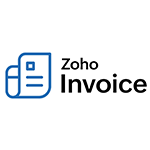
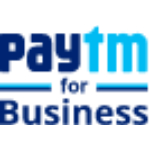


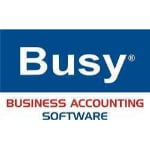
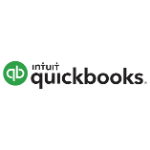
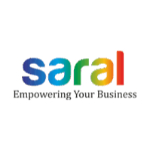
.png)
